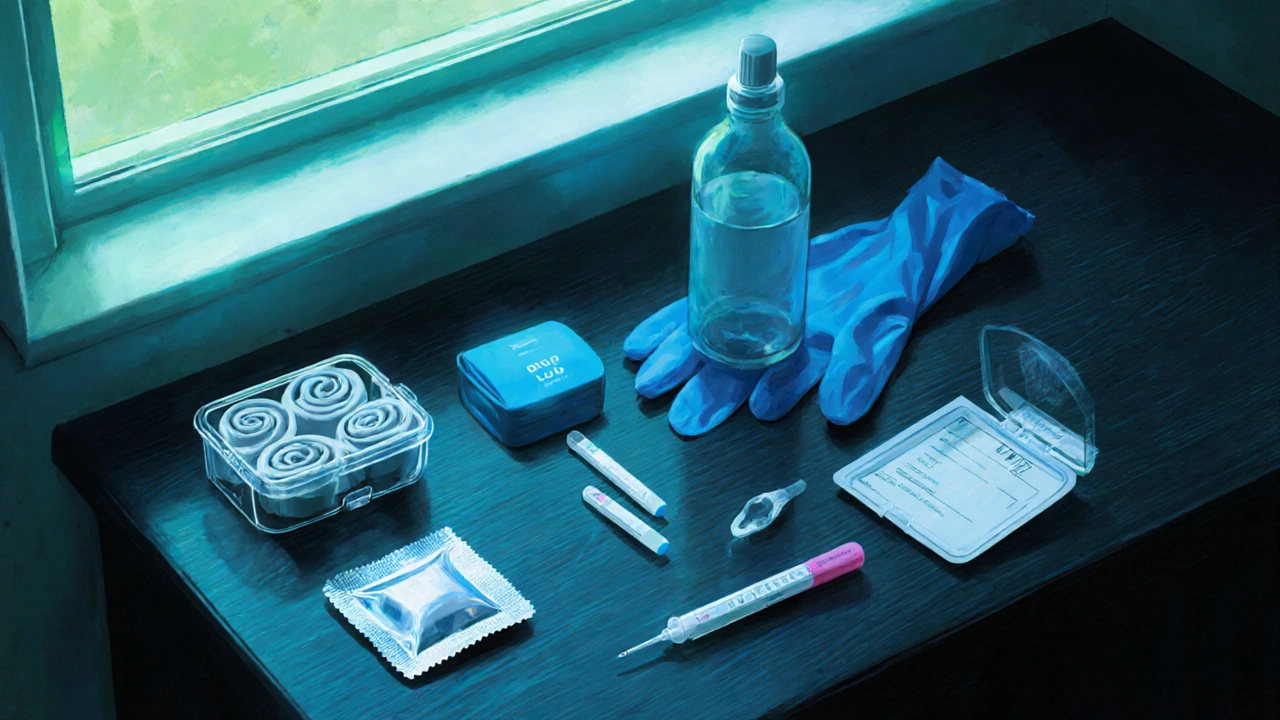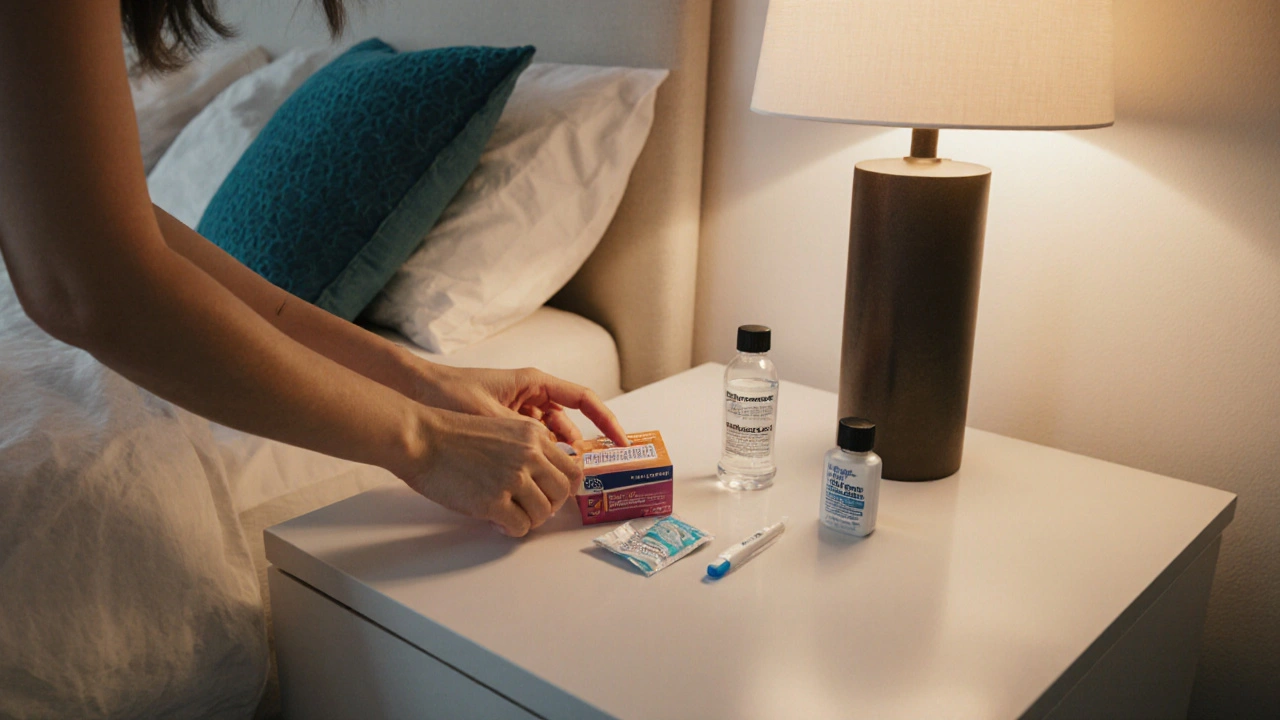Staying healthy on the job isn’t a luxury-it’s a necessity. Whether you’re a full‑time escort, a part‑time independent provider, or anyone in the adult industry, the right habits can keep you safe, energized, and ready for whatever comes next. Below are practical, no‑fluff health tips for sex workers that you can start using today.
What Does "Sex Worker" Mean and Why Does Health Matter?
Sex worker is a person who provides sexual services in exchange for money or other compensation, ranging from independent freelancers to agency‑affiliated professionals. Your body is your most valuable tool, so protecting it translates directly into a longer, more profitable career and better quality of life.
How to Protect Your Sexual Health
Sexual health is a state of physical, emotional, mental, and social well‑being in relation to sexuality. It starts with the basics: condoms, dental dams, and regular testing.
- Condoms are non‑negotiable. Use a fresh latex or polyurethane condom for every client, and check the expiration date.
- Dental dams protect against oral exposure to fluids. Keep a stash of flavored versions for client comfort.
- Carry a small, discreet testing kit (e.g., finger‑prick HIV, syphilis). Monthly self‑tests help spot infections early.
Pair these tools with a clear communication script: "I only work with condoms and dental dams. If that’s not okay, we can’t proceed." Setting the rule up front saves time and reduces risk.
STI Prevention: Steps That Really Work
STI prevention involves practices that reduce the chance of acquiring or transmitting sexually transmitted infections. Here’s a quick checklist:
- Rotate protection: use a new condom for each act, and never double‑wrap.
- Lubricate with water‑based lube to avoid condom breakage.
- Get the HPV vaccine; it covers the strains most likely to cause cancer.
- Schedule a quarterly full‑panel lab test with a clinic that respects privacy.
- Know your client’s recent STI history, but verify with testing whenever possible.
Keeping Your Mental Health in Check
Emotional resilience is just as important as physical safety. Mental health is the state of psychological well‑being that allows an individual to cope with stress, relate to others, and make decisions. Strategies that work on the street often work at home.
- Set clear boundaries: decide in advance what services you’re comfortable offering and stick to them.
- Schedule regular downtime. Even a 30‑minute walk after a client can reset your nervous system.
- Find a trusted peer group or an online forum where you can vent without judgment.
- Consider a therapist who specializes in stigma‑related work. Many offer sliding‑scale fees or virtual sessions.

Nutrition and Physical Wellness
Nutrition is a balanced intake of macro‑ and micronutrients that fuels the body, supports immune function, and aids recovery. The job often involves late nights and irregular meals-plan ahead.
- Pack protein‑rich snacks (nuts, jerky, Greek yogurt) to keep energy stable.
- Stay hydrated. Keep a reusable bottle; aim for at least 2L of water a day.
- Limit alcohol and caffeine before appointments; they can dehydrate and impair judgment.
- Prioritize sleep. A dark, cool room and a short meditation before bed improve rest quality.
Protective Equipment Beyond Condoms
Think of protective equipment as any gear that reduces physical contact with bodily fluids, such as gloves, barriers, and lube. Here’s what to keep in your toolkit.
| Item | Best Use Case | Cost per Unit |
|---|---|---|
| Latex gloves | Hand‑to‑genital or anal play | $0.05 |
| Polyurethane gloves | Clients with latex allergy | $0.07 |
| Water‑based lube | All condom‑based activities | $1.00 (30ml) |
| Silicone lube | Long‑lasting lubrication, no condom incompatibility | $2.00 (50ml) |
Accessing Health Services Without Stigma
Finding a clinic that respects your work can be tricky, but it’s doable.
- Look for LGBTQ+ or community health centers; they often have non‑judgmental policies.
- Use tele‑health platforms that allow discreet ordering of test kits.
- Ask trusted peers for provider recommendations-word‑of‑mouth is powerful.
- Keep a personal health diary (paper or encrypted app) to track symptoms, test results, and vaccinations.
Legal Rights and Reducing Stigma
Knowing your local laws helps you avoid unnecessary legal trouble. In many regions, sex work is de‑criminalized, and you have the right to safe working conditions.
- Carry a copy of local labor rights information.
- If you’re stopped by police, stay calm, provide only required identification, and request a lawyer if needed.
- Participate in advocacy groups; collective voices can push for better health policies.

Common Mistakes to Avoid
- Skipping condom use for “big tip” - the short‑term gain isn’t worth the long‑term health cost.
- Relying on visual inspection for STIs - many infections are asymptomatic.
- Neglecting mental health - burnout shows up as insomnia, irritability, or substance misuse.
- Using oil‑based lube with latex condoms - it weakens the material and leads to breakage.
- Skipping regular vaccinations - hepatitisB and HPV protect against serious diseases.
Quick Reference Checklist
- Carry condoms, dental dams, and lubricants for every client.
- Test for HIV, syphilis, chlamydia, and gonorrhea at least quarterly.
- Schedule a mental‑health check‑in at least once a month.
- Eat a protein‑rich snack before each shift.
- Know two local clinics that offer non‑judgmental services.
Frequently Asked Questions
How often should I get tested for STIs?
Aim for a full STI panel every three months. If you have a new client or notice symptoms, test immediately.
Can I use the same lube for all types of play?
Water‑based lubes work with all condoms and most toys. Silicone lube lasts longer but shouldn’t be used with silicone toys.
What should I do if a client refuses protection?
Stick to your policy: no protection, no service. Offer alternatives like a non‑penetrative session, or simply end the encounter.
Is there a discreet way to get vaccinations?
Many community health centers offer walk‑in vaccination days. You can also order home‑injection kits via tele‑health services that keep your work status private.
How can I manage stress after a difficult client?
Practice a short grounding exercise: breathe in for four seconds, hold for four, exhale for four. Follow with a warm shower, a soothing playlist, or a quick chat with a trusted friend.
What’s Next?
Pick one tip from each section and make it part of your routine this week. Small, consistent changes add up to a healthier, safer, and more sustainable career. Stay informed, stay protected, and remember-your health is your strongest asset.




F. Erich McElroy on 9 October 2025, AT 17:25 PM
If you can't even spell “condom” right, you don't belong here.